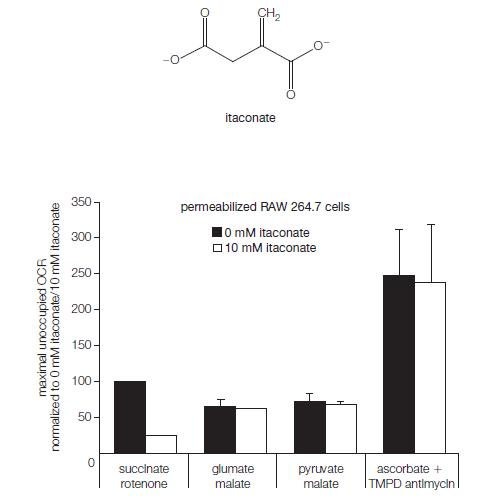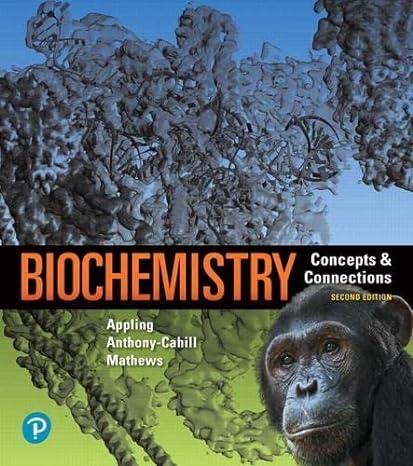Inflammatory stimuli cause macrophages to undergo dramatic metabolic reprogramming, including a switch from oxidative phosphorylation to aerobic
Question:
Inflammatory stimuli cause macrophages to undergo dramatic metabolic reprogramming, including a switch from oxidative phosphorylation to aerobic glycolysis. Cordes et al. (J. Biol. Chem. 291:14274–14284, 2016) explored the role of itaconate in this metabolic reprogramming. Itaconate is an antimicrobial metabolite that is also produced in mammalian immune cells. Permeabilized RAW264.7 macrophages were treated with various oxidizable substrates in the presence or absence of 10 mM itaconate. Maximal uncoupled oxygen consumption rate (OCR) in response to four different oxidizable substrates (maximal uncoupled OCR) were then measured, and the results are shown below.

(a) Based on these data, at which respiratory complex does itaconate act? Explain your answer.
(b) What kind of inhibitor would you predict itaconate to be (competitive, noncompetitive, irreversible)?
(c) The endogenous source of itaconate is via decarboxylation of one of the citric acid cycle intermediates. Which is the most likely substrate for this decarboxylation reaction?
Step by Step Answer:

Biochemistry Concepts And Connections
ISBN: 9780134641621
2nd Edition
Authors: Dean Appling, Spencer Anthony-Cahill, Christopher Mathews





